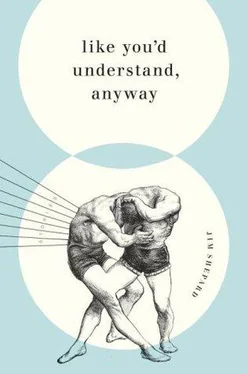Korolyov announced a delay. I leaned my head back inside my helmet. He said it had to do with a problem with the telemetry. He estimated it at forty minutes, and asked if I wanted the music again. I told him no. I removed my gloves and pulled my notepad from my toiletries box and recorded the above.
17 June 1963 Night
The pen, attached by twine, drifts away when I stop to think, only to be reeled back time after time.
I have now been in space thirty-three hours. Thirty-three hours ago, following the delay, Korolyov announced launch key to go position; air purging; idle run; ignition. There was the helicopter whine of the pumps injecting fuel into the combustion chambers and the engines firing up. The rocket shook and caterwauled as the mechanisms adjusted to their inconceivable stresses, and when the gantry's hold-down arms disconnected, I felt a jolt and heard Korolyov report on the ascent. “How are you?” he asked. “How are you?” I asked him back. I was squashed into my seat, shaking like someone on an apple cart, and found it difficult to talk. There was a sharp drop in the g-load as the booster shut down, shoving me forward against my straps, then a bump as it dropped away, the noise resuming with the g-load. When the third stage shut down and fell away, I felt the weightlessness as a buoyancy in my muscles, as if nothing took any effort at all.
The vibrations stopped. The capsule was a marketplace of fans and pumps. It was rotating gently, and through the porthole came a shock of indigo, replaced just as quickly with an ardent black. Tereshkova , I thought. You're in outer space.
I saw the sun. Clouds. Islands and a coastline. The light blue of the horizon was violet at the edge of its curve. Beyond that were stars. When the sun appeared again, the illumination was so intense I had to turn away.
“Hello, Seagull,” Bykovsky called. I leaned forward against my straps and looked out the porthole, as though he were waving.
“Hello, Hawk,” I answered. Stars wheeled across my line of vision.
“Did you ask something?” Korolyov wanted to know. He'd heard my weeping. “No,” I told him.
Kamanin announced to us both that our greetings were being broadcast around the world. Someone right now was running to my parents' farm to tell them that their little Valentina had just appeared on the television.
We exchanged pleasantries. We told everyone how we were doing. Within minutes we were transferred to Petropavlovsk on Siberia's coast, and then soon after that we swept out over the Pacific and into the vast shadow of the half of Earth that was asleep. Transmissions from below flickered and buzzed and went dead. The fans and pumps were still whirring all around me.
“I've unsnapped,” Bykovsky finally said. “Try it. It's wonderful.”
“I'm here,” I told him. My capsule rotated through two full revolutions. We had only seventeen minutes of privacy on this orbit. “I'm here,” I repeated. My earpiece hissed again for a count of fifteen.
“Hello,” he finally said, and even in that one word I could hear the forbearance.
What had I expected? I wasn't sure. I still wasn't sure. We hurtled through our planet's shadow. “This is Seagull,” I told him, more plaintively than I wished to.
“The slightest push sends you in the opposite direction,” he reported, adding that he'd now been unstrapped for nearly ninety minutes.
“Do you have nausea?” he asked.
“Do I have nausea?” I said.
“Where are you?” I said.
There was a series of clicks in my ear. “I'm performing one of my procedures,” he said.
When I was a small girl, one of my evening chores was retrieving the goat that strayed to browse the garden between two tumbledown houses that frightened me. Each night, my father would say, “Oh, I'll go with you.” And then, when I waited: “Go! I'm not going.” And every single time, I'd say to myself as I went, Stupid: you took the bait. But next time you'll be smarter.
“I'm doing my stretching exercises,” Bykovsky informed me, and then his responsibilities absorbed his attention for the rest of the time we were in shadow, and I made no further attempt to distract him.
Our code phrases for communicating our condition, given that the Americans were listening, were as follows: a report of “feeling excellent” signified all was well; “feeling good” conveyed there was some concern; and “feeling satisfactory” meant that the mission might need to be terminated.
“How are you, Seagull?” Korolyov said once radio contact was reestablished. The sun broke around the bottom of the world like the arc from a welder's torch.
“I'm feeling satisfactory,” I reported.
“You're what?” he said. “Say again, Seagull?”
But I chose not to answer. There were frantic attempts to reestablish contact.
“Hawk, Hawk, please contact Seagull,” Korolyov urged, spinning toward me so far below.
“Seagull, this is Hawk,” Bykovsky said after a moment. “Is everything excellent?”
“How are your experiments?” I answered. My gloves seemed steady on the switches before me.
“I think something may be wrong with her receiver, or she may have selected the wrong channel,” he told Korolyov.
He also reported periodically that he was continuing to pay close attention to his physical regimen. In that same period of time I failed to activate my biological experiments, failed to participate in my medical experiments, and failed to keep an official log, writing for myself instead. Solovyova tried to raise me, and when she did I reached for my radio but then eased my hand back. My helmet chafed my shoulders. I wished I had toothpaste. I was supposed to photograph the solar corona but the film cassette stuck in the camera and I cracked the inner window with the lens attempting to remove the cartridge.
“Seagull, are you there?” Korolyov pleaded.
“I think she's asleep,” Bykovsky finally told him.
18 June 1963 Night
The second-day crisis was that I failed to perform a major goal of the mission: manual control of the spacecraft. Korolyov was frightened that I would be lost should the automatic reentry system fail. Nikolayev and then Gagarin himself were brought in to instruct me from the ground. Gagarin was a gentleman about it. There are two guidance systems for establishing orientation for retrofire: one uses an automatic solar bearing, and the other is manual and visual. My task was to hold the Yzor orientation viewport level with the Earth's horizon for fifteen minutes, but it refused to stop bouncing and slipped out of my crosshairs. “There it goes again,” I'd say with equanimity, while below they tried to keep the exasperation out of their responses. My eyes filled with tears and just like that the tears went away.
I had meat mixed with sorrel or oats, and prunes and processed cheese for dinner. The bread was too dry.
19 June 1963 Night
A few minutes ago I passed the lights of Rio within the blackness of Brazil. This morning I was successfully talked through the manual control by Nikolayev. I remember him as a smug and unpleasant person with jowls and the darkest razor stubble I've ever seen. Everyone is much relieved below. They're bringing me back early.
I've often considered what kind of first impression I make. I assume that I initially evoke a measure of intrigue before people get to understand me and become repulsed.
In my most recent exchanges with Bykovsky, I feel as though I've been able to detect with great precision brutality and remorse tinged with diffidence and pity. Some I haven't had the heart to report, even here. None of this should surprise me. Only my loneliness now generates fear. Otherwise I'm an uninteresting and aching surface.
Читать дальше












